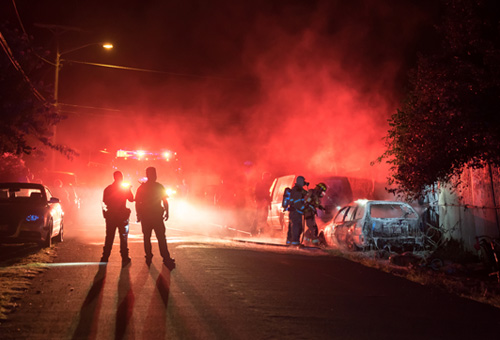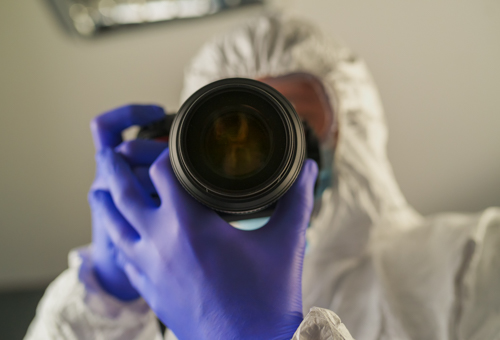


Learn how to objectively investigate child death cases, particularly when the cause and manner of death is unexplained. Examine investigative mindset from initial call-out to case resolution and learn how to gain an understanding of what happens with a victim-centered approach, exploring the emotional trauma of the non-offending caregiver. Discuss possible causes of death and best practices and tips including various investigative steps for evidence collection, witness and suspect interviews. This basic course offers law enforcement, CPS, and other child death investigators up-to-date practices for the investigation of child deaths.

Join us for an intensive training focused on understanding and building relationships between the forensic pathologist, homicide investigator, and prosecutor in successfully investigating and prosecuting child homicide cases. Learn autopsy protocols, forensic essentials, and the criticality of determining the cause and manner of death. Understand the unique aspects of investigating a child homicide including interviewing and interrogation, suspect pool development and the role and importance of the prosecutor in gaining appropriate convictions.

Improve investigative techniques and prosecutorial efforts needed to successfully decipher unresolved and cold cases. Explore essential investigative, forensic and prosecution methodologies through the dissection of actual cases, best practice examples, interactive discussions, and contemporary resources. Learn proven strategies to avoid complications that are detrimental to the prosecution of cold cases. Discuss practices relevant to the establishment and maintenance of an efficient cold case unit.

Explore and discuss the application of Forensic Genetic Genealogy (FGG) and the ways it aids in investigations. Techniques instructed will include tips in using genealogy to help establish the identities of cold case suspects and assist with identifying human remains. Instruction is provided by experienced investigators who have gained expert knowledge in their application of forensic genetic genealogy through real-life cases. Discuss topics including forensic genealogy techniques and investigative strategies for developing leads and information, as well as working with private labs and other related resources.

Join other investigators to gather new information and tools for investigating fire and explosion related deaths. Examine the principles of fire behaviors, areas of focus in fire related deaths, working with the medical examiner’s office and evidence/scene safety considerations.

Explore the challenges involved with no body homicide investigations. Most start as missing persons cases; the suspect’s head start coupled with the absence of the victim’s body leaves gaping holes in the investigation. Join us to hear from experienced instructors as they provide the framework and tools to build a prosecutable circumstantial case—regardless of the age of the case—from proving the victim is dead using established practices such as victimology, interviews, documents/records/digital footprint to search strategies and best practices in documentation. This training will also provide established prosecution strategies that maximize the likelihood of success. During instruction, there will be an opportunity to share your case as a class participation case study exercise.

Explore strategies for conducting death investigations that occur from several origins. Learn how to evaluate the crime scene, conduct effective interviews and interrogations, develop case leads, utilize investigative resources (crime laboratories, medical examiners), and comprehend medical autopsies.

Examine suspicious death case studies based on the experiences of a homicide detective and forensic pathologist. Identify key scene findings, review actual cases and correlate these findings to the autopsy results. This course will discuss improving case outcomes through strong relationships between investigating agencies and the medical examiner’s office. Students will gain appreciation of how unique case features can affect the direction of the investigation. The ultimate resolution of each case examined will be considered and applied lessons learned are shared during the course.

Suspicious deaths can take months or even years to solve. Collaboration is key to a positive outcome for victims and their families. Bill Hanson shares three critical ways to ensure success in your death investigation cases.

Do you know how to prevent your case from going unsolved? Do you provide quality control on your collected evidence? Bill Hanson shares three critical things to consider when investigating crime scenes.
